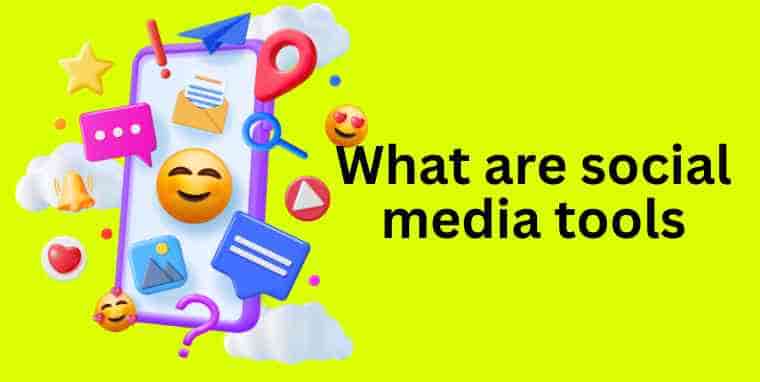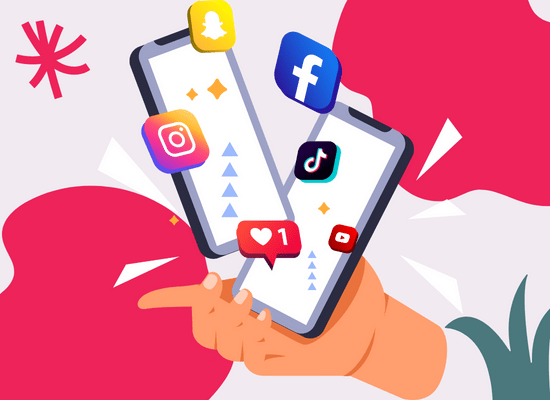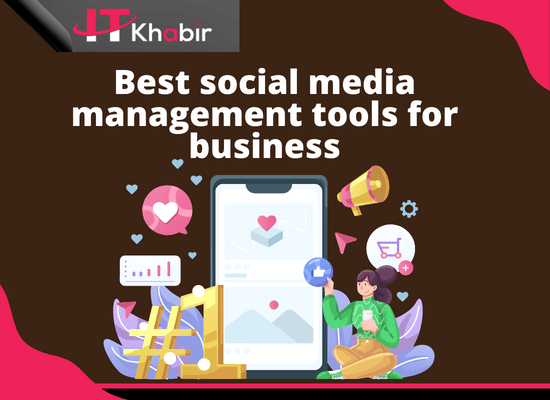Welcome to this social media tools What are social media tools used for overview of the top 10 social media tools! Social media tools are a great way to help you manage, grow, and measure your presence on social media. This guide will provide an overview of the top 10 tools available and their various uses, including helping you create content, measure analytics, and more. By the end of this guide, you’ll have a better understanding of the various tools available and how they can help you maximize your social media presence. So let’s get started!
- Watch now for AI SEO Content Generator 97% Off
Management software companies – Powerful tools in 2023
Table of Contents
What are social media tools used for
Social media tools have become ubiquitous in modern life, with billions of people worldwide using platforms like Facebook, Twitter, Instagram, and LinkedIn to connect with friends, family, colleagues, and communities. But social media isn’t just a way to stay in touch with loved ones; it’s also a powerful tool for businesses, marketers, activists, and individuals looking to build their brands, reach a wider audience, and engage with customers and followers.
- Watch now for AI SEO Content Generator 97% Off
We will discuss some of the common social media tools used by individuals and businesses.
Social media has become a fundamental part of our lives, with billions of people worldwide using social media platforms to connect with friends, family, and businesses. Social media has also evolved from being a mere communication tool to a powerful marketing tool for businesses. With social media tools, businesses can promote their brand, engage with customers, and increase sales. In this article, we will discuss some of the common social media tools used by individuals and businesses.
Social media management tools:
Social media management tools are used to manage multiple social media accounts from one dashboard. These tools are beneficial for businesses that have a presence on multiple social media platforms. Some of the popular social media management tools include Hootsuite, Buffer, and Sprout Social. These tools allow users to schedule posts, monitor mentions, track analytics, and engage with their audience.
Analytics tools:
Analytics tools are used to track and analyze social media performance. These tools provide insights into audience demographics, engagement rates, and overall performance. Businesses can use these insights to optimize their social media strategy and improve their reach. Some of the popular analytics tools include Google Analytics, Sprout Social, and Socialbakers.
Content creation tools:
Content creation tools are used to create visual content for social media platforms. These tools are beneficial for businesses that want to create eye-catching and engaging content for their audience. Some of the popular content creation tools include Canva, Adobe Spark, and Piktochart.
Social listening tools:
Social listening tools are used to monitor social media platforms for mentions of a brand, product, or service. These tools help businesses to keep track of what their customers are saying about them and identify any issues that need to be addressed. Some of the popular social listening tools include Mention, Brandwatch, and Hootsuite Insights.
Influencer marketing tools:
Influencer marketing tools are used to identify and connect with influencers who can help promote a brand or product. These tools help businesses to find the right influencers for their niche and manage influencer campaigns. Some of the popular influencer marketing tools include AspireIQ, Upfluence, and Traackr.
Social media advertising tools
Social media advertising tools are used to create and manage paid social media campaigns. These tools allow businesses to target their audience based on demographics, interests, and behavior. Some of the popular social media advertising tools include Facebook Ads Manager, Twitter Ads, and LinkedIn Ads.
In conclusion, social media tools are essential for businesses that want to grow their social media presence and engage with their audience. These tools allow businesses to manage multiple social media accounts, track analytics, create visual content, monitor mentions, identify influencers, and run paid social media campaigns. By using social media tools, businesses can optimize their social media strategy, reach their target audience, and achieve their marketing goals.
- Watch now for AI SEO Content Generator 97% Off
We will explore the top 10 social media tools and what they are used for.
-
Hootsuite
Hootsuite is a popular social media management tool used by individuals and businesses alike. It allows users to manage multiple social media profiles, schedule posts in advance, and monitor mentions and hashtags in real-time. Hootsuite also offers analytics and reporting features that help users track their social media performance.
-
Buffer
Buffer is another social media management tool that allows users to schedule posts, manage multiple profiles, and analyze their social media performance. It also offers a feature called “Pablo” that lets users create and edit images for social media posts.
-
Canva
Canva is a graphic design tool that offers pre-made templates for social media posts, making it easy for users to create eye-catching visuals. It also offers a range of features, including image editing tools, font pairing suggestions, and customizable templates.
-
Sprout Social
Sprout Social is a social media management tool that offers features such as scheduling posts, monitoring social media accounts, and analyzing social media data. It also offers a CRM (customer relationship management) tool that allows businesses to manage their customer interactions on social media.
-
BuzzSumo
BuzzSumo is a social media tool that allows users to research popular content and track their own content’s performance. It offers a range of features, including content analysis, influencer identification, and competitor research.
-
Google Analytics
Google Analytics is a free web analytics tool that helps users track their website’s traffic and user behavior. It also offers social media analytics features that allow users to track their social media traffic and measure their social media ROI.
-
Feedly
Feedly is a content aggregator tool that allows users to collect and curate content from different sources. It also offers social media sharing features, making it easy for users to share curated content on their social media profiles.
-
MeetEdgar
MeetEdgar is a social media automation tool that allows users to schedule and recycle posts. It also offers content categories that make it easy for users to organize their social media content and ensure a consistent posting schedule.
-
Mention
Mention is a social media listening tool that allows users to monitor mentions of their brand or product on social media. It also offers sentiment analysis and competitor tracking features that help users stay up-to-date on their industry.
-
Bitly
Bitly is a URL shortening tool that allows users to create short, customized links for social media posts. It also offers tracking and analytics features that help users track the performance of their links.
Social media tools have become essential for managing social media profiles effectively. From social media management to content creation and analytics, there are a variety of tools available to help users optimize their social media presence. The top 10 social media tools mentioned in this article offer a range of features and benefits, making it easy for users to find the right tool for their needs.
- Social Networking Sites – Social networking sites like Facebook, Twitter, and LinkedIn are great for connecting with others, sharing information, and promoting your brand. They allow you to create a profile, share updates, and connect with friends, family, and colleagues.
- Microblogging – Microblogging platforms like Twitter and Tumblr allow you to share short messages, photos, and videos with your followers. They are great for promoting your brand, sharing updates, and engaging with your audience.
- Video Sharing – Video sharing platforms like YouTube and Vimeo allow you to share videos with your audience. They are great for promoting your brand, demonstrating products, and engaging with your audience.
- Photo Sharing – Photo sharing platforms like Instagram and Pinterest allow you to share photos with your audience. They are great for promoting your brand, showcasing products, and engaging with your audience.
- Social Bookmarking – Social bookmarking sites like Delicious and StumbleUpon allow you to save and share links to interesting articles and websites with your audience. They are great for promoting your brand, sharing information, and engaging with your audience.
- Social Listening – Social listening tools like Hootsuite and Sprout Social allow you to monitor social media conversations about your brand, products, and industry. They are great for understanding your audience, identifying trends, and engaging with your audience.
- Social Analytics – Social analytics tools like Google Analytics and Facebook Insights allow you to track and analyze your social media activity. They are great for measuring the effectiveness of your social media strategy, identifying areas for improvement, and engaging with your audience.
In conclusion, social media tools have become essential for individuals and businesses to connect with their audiences, promote their brands, and engage with others. Whether you’re looking to share information, demonstrate products, or engage with your audience, there’s a social media tool out there that can help you achieve your goals.
What do social media tools do?
Social media tools are software applications and platforms that allow users to create, share, and exchange content on social media networks. These tools facilitate communication, collaboration, and engagement among individuals, groups, and organizations across different social media platforms.
Some common social media tools include:
Social Networking Sites: These platforms, such as Facebook, LinkedIn, and Twitter, allow users to create personal or business profiles, connect with other users, and share content such as posts, photos, and videos.
Content Management Systems: Platforms like WordPress and Blogger enable users to create and publish blog posts, articles, and other types of content on the internet.
Social Listening Tools: These tools monitor social media platforms for mentions of a particular brand, topic, or keyword, allowing businesses to track their online reputation, understand their audience, and identify trends.
Analytics Tools: Social media analytics tools, such as Google Analytics, provide insights into the performance of social media campaigns and content, including engagement, reach, and conversion rates.
Social Media Advertising Platforms: These tools, such as Facebook Ads and Google AdWords, allow businesses to create and target ads to specific audiences on social media platforms.
Overall, social media tools enable individuals and businesses to connect, communicate, and engage with their audiences on social media platforms in various ways.
What are the main tools of social media?
The main tools of social media can vary depending on the platform, but some common tools include:
- Profiles: User accounts that allow individuals or businesses to share information about themselves or their brand.
- Posts: Updates, photos, videos, or other content shared by users on their profiles or pages.
- Likes: A way for users to show their approval or support for a post or comment.
- Comments: A feature that allows users to engage in discussions about posts or other content.
- Shares: A feature that allows users to repost or share content from other users on their own profiles or pages.
- Hashtags: Keywords or phrases preceded by the pound sign (#) that make it easier for users to find and organize content related to a specific topic.
- Direct messaging: A feature that allows users to send private messages to other users.
- Live streaming: A feature that allows users to broadcast live video content to their followers in real-time.
- Analytics: A tool that provides data and insights on the performance of a user’s content, such as the number of likes, shares, and views.
- Advertising: A feature that allows businesses to promote their products or services to a targeted audience through paid ads.
What are social media tools used for: Final Thoughts
So if you’re feeling down about social media, try to keep an open mind and remember that there is a lot of potential for positive outcomes. With a bit of patience and perseverance, you can learn to make the most of these tools and use them to achieve your goals.
- Watch now AI SEO Content Generator, Digital product lifetime deal 97% Off


















